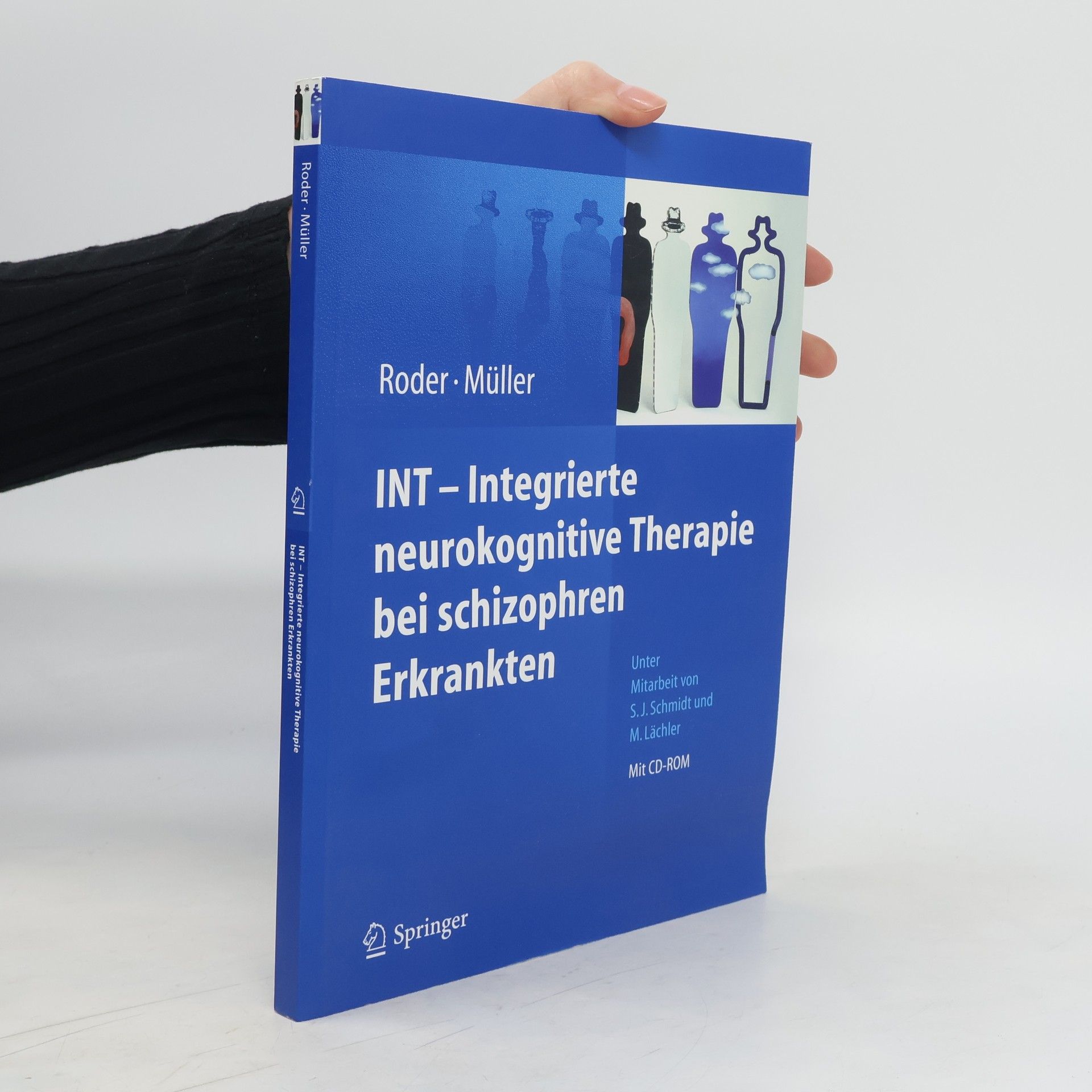INT
- 218pages
- 8 heures de lecture
Die Integrierte neurokognitive Therapie (INT) ist ein innovativer Gruppentherapieansatz, der alle Aspekte der MATRICS-Initiative des NIMH integriert. Diese Initiative definiert 11 relevante neuro- und sozialkognitive Funktionsbereiche für Menschen mit Schizophrenie, deren Stärkung ein zentrales Therapieziel darstellt. INT basiert auf den kognitiven Unterprogrammen des etablierten Integrierten psychologischen Therapieprogramms (IPT) und verfolgt einen ressourcen- und recovery-orientierten Ansatz. Ein Schwerpunkt liegt auf der Verbesserung der Therapiemotivation und Selbstwahrnehmung der Patienten, wobei Gruppendynamik und Alltagsbezug im Vordergrund stehen. Ziel ist die Steigerung der Lebensqualität und die Reintegration der Patienten in die Gesellschaft. Das Manual bietet Kliniker einen verständlichen Einstieg in die Behandlung neuro- und sozialer Kognitionen und beschreibt die INT in vier gut strukturierten Modulen. Es illustriert das therapeutische Vorgehen anhand zahlreicher Fallbeispiele, auch in herausfordernden Situationen. Zudem enthält es umfangreiche, teilweise computergestützte Therapiematerialien, die vielseitig eingesetzt werden können. Kleinere Einheiten thematisieren Indikationsstellungen sowie die individuelle Therapieplanung. INT hat sich in einer internationalen, randomisierten Multicenterstudie in Deutschland, Österreich und der Schweiz als erfolgreich erwiesen und wird sowohl von Therapeuten als auch von Pa

